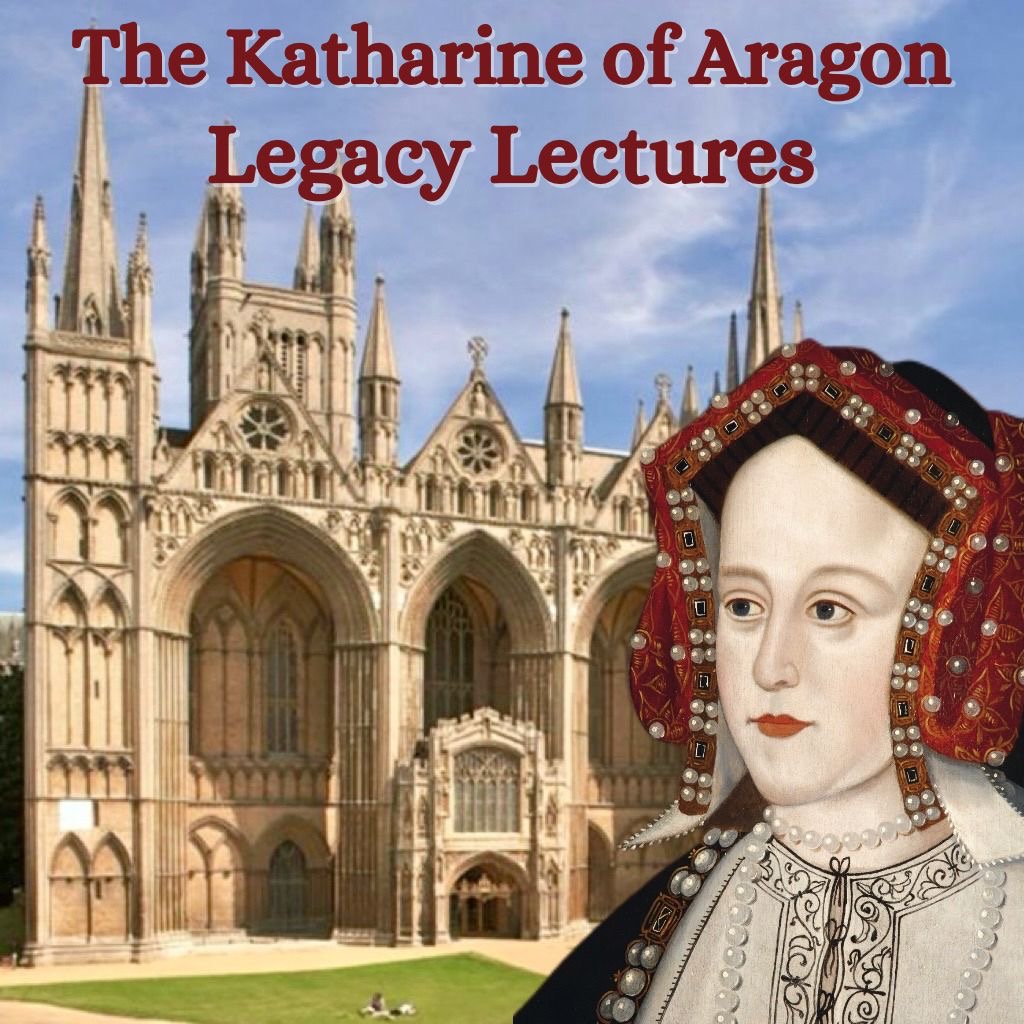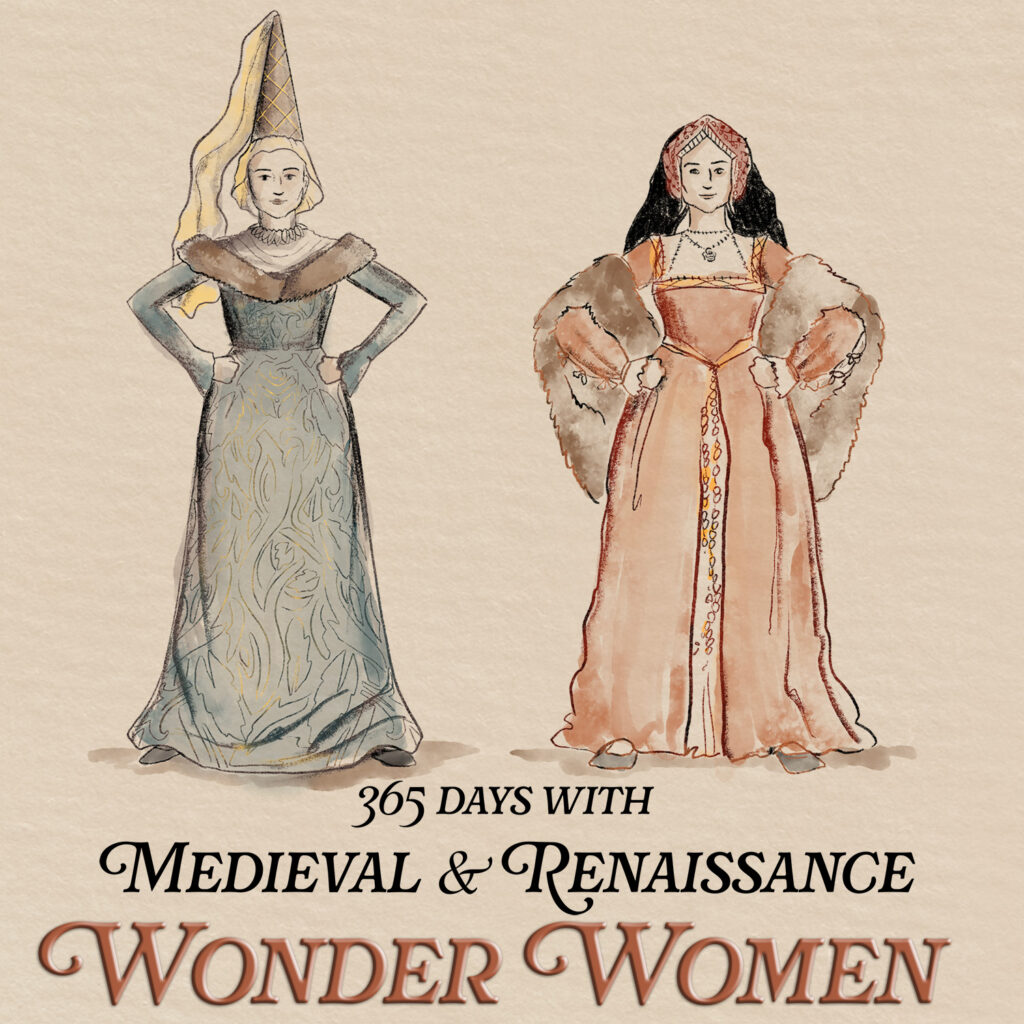Readers are insatiable when it comes to Tudor history, what do you think is its lure?
The lure may be specifically different for each reader or viewer, but I think there are general reasons. The Tudors have been figureheads, portraits in a museum, history stories from a time we can almost not imagine, strange beings from a vastly different era. Today’s novels and movies show them as flesh and blood human beings with faults and passions, personalities often close to our own. I think in the last few decades they have become humanized. We think we know them and want to know more.
Who is your favourite Tudor personality and why?
There are many fascinating Tudors…rulers and the people who surrounded and served them. Elizabeth I for me is the most fascinating, perhaps because she reigned longest and was a bridge between medieval and Renaissance England, perhaps also because so much of her inner life was hidden. This is perfect fodder for novelists.
You have written two books about Elizabeth. What makes her such a fascinating subject?
What was she hiding? The hidden Elizabeth is the one most fascinating to me. We know about her trials on the way to the throne. We know of her vow never to marry and the times she wavered. We know her favorites, but we don’t know what that meant to her in suffering and self-denial. Perhaps the most intriguing is what did forbidden love cost her, especially when she was young and again after she lost the Earl of Leicester. There are so many unanswered questions that Elizabeth deliberately left that way. A novelist is drawn to such a life. I always question what I would have done given her unlimited power and money. What would any of us do?
Why do you think that Elizabeth and Dudley’s relationship survived so many upheavals?
Need, simply. And she trusted him. Also I think there must have been many times in her life when she had to be herself, be authentic and he was the only one she could allow to see the truth.
I think their young love turned into something much deeper over the years. She could not bear to have him away from her. Although they fought, loud and long, up and down the corridors of her palaces, she trusted him to have her best interests at heart. How interesting and terrifying it must have been to watch them? She had all power, but she could not part with him for long without great pain. And he waited for her until at least 1575, that last summer in Kenilworth when he broke the bank to entertain her beyond royally. After that last refusal he gave up and married Lettice Knollys, Elizabeth’s hated cousin. He needed an heir and Lettice looked eerily like a younger Elizabeth. He finally realized that the queen would never make him king, never share her power. That kind of on and off again passion must have been high drama at Whitehall, Greenwich and Nonsuch. Ambassadors from foreign countries thought they were lovers and wrote to their kings about it. Her chief minister; Burghley, thought they were lovers as late as 1572, fourteen years after she ascended the throne.
When we remember Elizabeth’s childhood, no mother, an off and on again emotional and frightening relationship with her father, Henry VIII, it’s not difficult to imagine how much she needed the safety of a dedicated man’s love.
Why do you think Elizabeth never spoke about her mother, Anne Boleyn?
We don’t really know that she didn’t; it’s just not part of the record. Remember Elizabeth grew up in an England that called Anne, the Great Whore and thought her guilty of multiple adultery, incest and witchcraft. Especially after Elizabeth was crowned, she had to be careful to be thought pure to attract marriage proposals from the royalty of the Continent. And she obviously liked the role. Remember: the Virgin Queen, Gloriana, etc.
We do know that Elizabeth still kept a picture of her mother in a locket at her death in 1603. Use your imagination. That tells me that the daughter was reaching out to the mother in some way.
In your research into the Elizabethan court have you come across any customs, rituals or traditions that you’ve found particularly interesting or peculiar?
Many, particularly in their foods and medicines. I’m fascinated by the idea that ground up animal parts, such as a bull’s heart, would impart strength to the drinker. I suspect there were other bull parts that were used for strength in other areas.
Elizabeth, like her father, liked to dabble in physick and made up many potions that she used and/or sent to friends. Herbal medicine was being codified at the time which eventually led a few decades later to Culpeper’s Complete Herbal fascinating to this day. I consult it when I’m writing in order to treat my character’s ills authentically.
As for food, new vegetables were being brought from the New World, the potato being most famous. When Sir Walter Raleigh presented one to Elizabeth, she didn’t care for it, but it did not take long to become a staple. Perhaps Raleigh’s tobacco caught on faster.
Interesting to note that radishes were a very popular dish and thought to have digestive properties. They were served boiled.
Meat, of course, was the primary food, especially at court. Meat course after meat course was customarily served, based on one’s status. Noble’s were authorized to have seven courses from the palace kitchens. I’ve read Elizabeth’s food bills and they were hefty. Of course, food was gathered from everywhere and when it was for the queen, it was best to charge her representatives less than the going price.
Are you presently working on any Tudor books?
Yes, I am working on a book titled The Queen’s Lady Spy about Sir Francis Walsingham’s daughter who wants to be a spy, too. She’s a very smart young lady who likes to dabble in ciphers, which of course does not please her father or her husband.
There’s a backstory to this novel, perhaps two of them. There’s a legend in my mother Anne Barnes’s family that we have an ancestor who was Lord Mayor of London during Elizabeth’s reign. In my research for this novel, I was intrigued to discover that Francis Walsinham, Queen Elizabeth’s spymaster, had married Anne Barnes, daughter of Sir George Barnes, Lord Mayor of London in 1663-64. They had one child, Frances, who first married the poet Sir Philip Sidney and then Robert, Earl of Essex, Queen Elizabeth’s last favorite. Frances is the heroic focus of my story.
I am tied to this book in a second way. I was once a cryptographer for the U.S. military. During long night shifts where there were few messages, I read from their small library about the history of codes and codebreakers. One book was about the rapid development of ciphers during Elizabethan times. Though I did not know it then, it is fascinating to me that my ancestry and past experience gradually came together in this story.
Do you have any rituals that you follow when writing?
Not many. I’m afraid all the drama in my life is in my books. Otherwise I lead a quiet, even boring to some, life. I work in a closed off room (there’s something symbolic about shutting a door) and I usually play music of the period very softly in the background. While I’m an absolute orderly, even rigid, housekeeper, my working room is a blizzard of paper and book stacks. Occasionally, I have to take a day just to clear it away so that I know what I have. Most days I work from morning until about 2 p.m. with a break for my two mile walk in a nearby park. I’m fairly rigid about the walk, rain, wind or sun. No matter how many back rests and special seat pillows I buy, the exercise is necessary. I read for research about two hours a day. In the evening, I love to watch old movies and the history channels. Occasionally, I break for other activities, but it is occasional because a novel demands attention. Characters are always doing something in your mind whenever you’re not at the keyboard. I bring several post-its to the computer every morning.
The ghost of Elizabeth I is said to manifest in the Royal Library of Windsor Castle and has allegedly been witnessed by members of the Royal family. Do you believe in the paranormal?
I’m afraid I don’t never having had such an experience. Perhaps I use
all my imagination in my novels.
But if she does walk there, I’d love to see her.
If you had only 50 words in which to describe Elizabeth I, what would you write?
Only fifty words? For a novelist!
How many ways can you say fascinating? I think writers have been trying for 400 years to capture her essence. In this regard, I’ll have to let The Virgin’s Daughters and His Last Letter speak to my knowledge and understanding of Elizabeth Tudor.
Thank you Natalie and hello to all your readers at On The Tudor Trail.
For more information on Jeane Westin visit her official website here.

















Great interview! The next book sounds intriguing too. Love to read about everyday things like food and medicine too.
Thank you Amanda. I am also fascinated by everyday Tudor life and particularly interested in Tudor medicine. It’s a miracle that people survived some of their ‘cures’…
What an intriguing interview. I gobbled it up, thanks very much Jeane and Natalie. I’m keen to read one of Jeane’s novels now.
Great interview! The book sounds amazing.
It is great Alyson!
cant get enough of the tudors
I know how you feel Lisa!